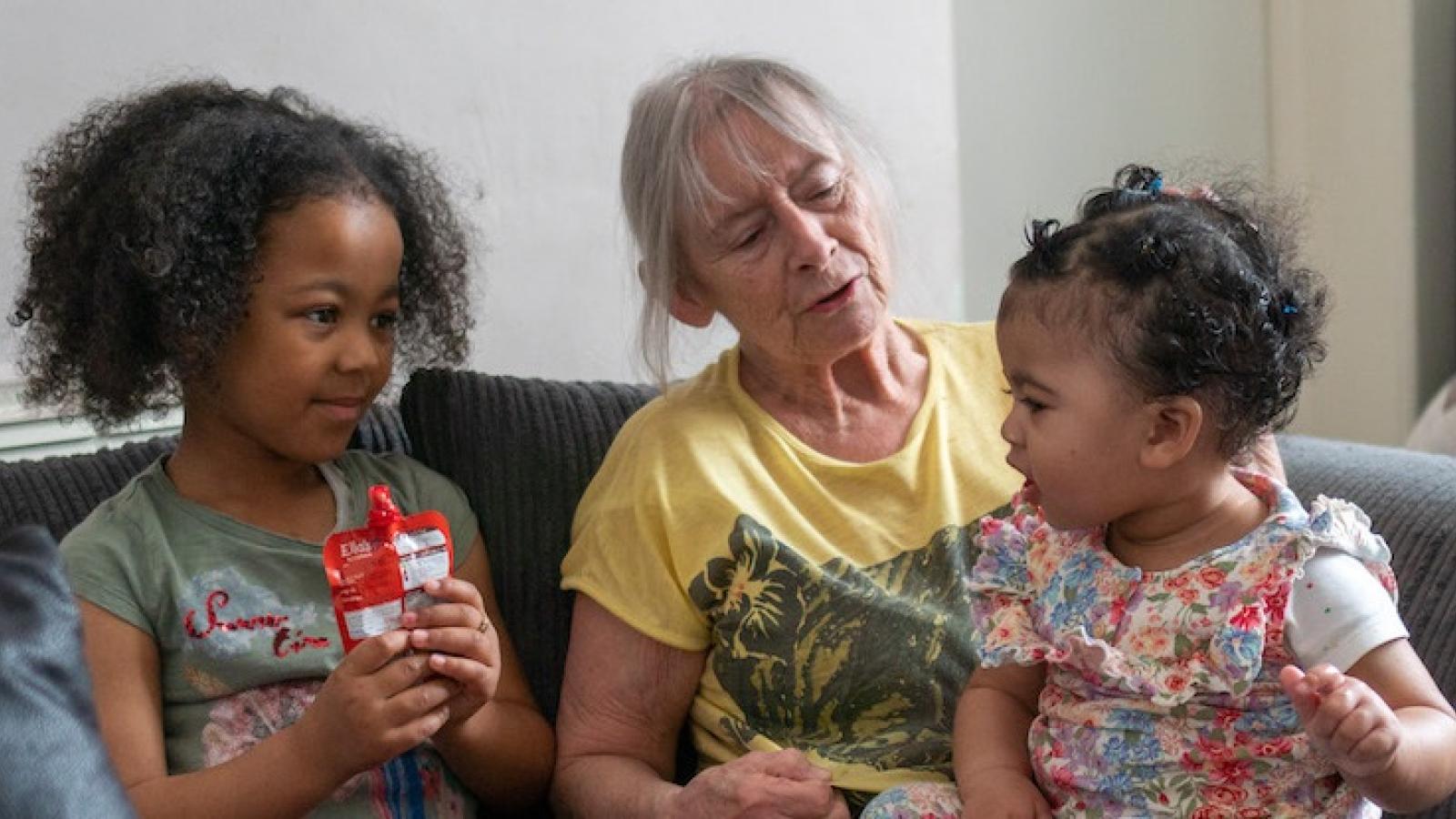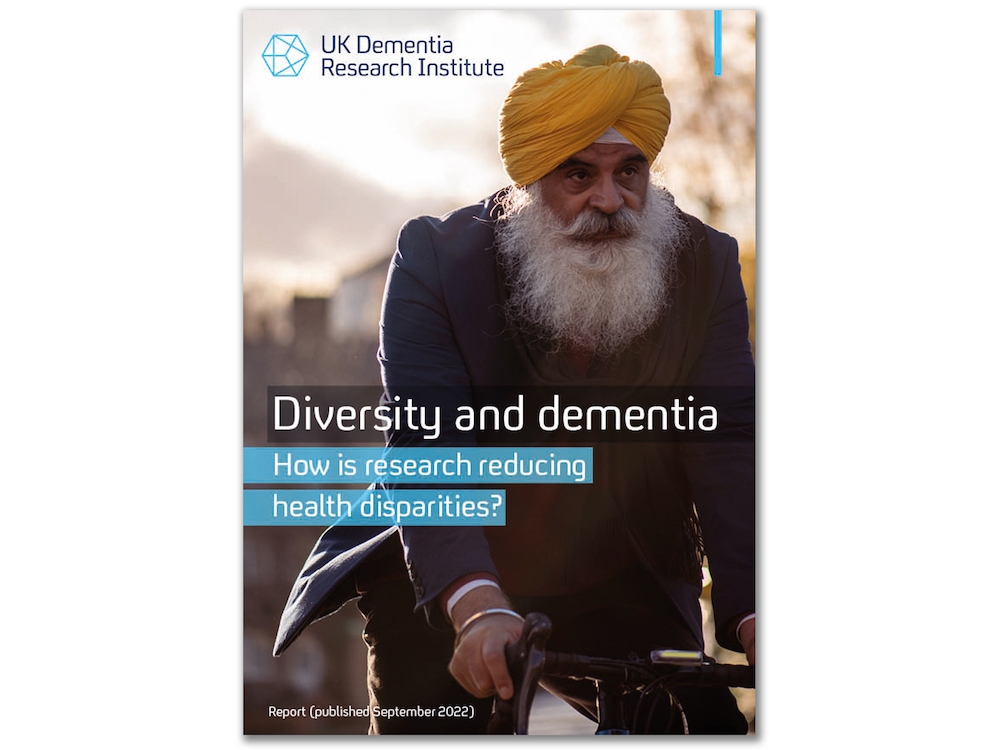How health inequalities are impacting people with dementia, and how research can help to address this, was the subject of a lively webinar hosted by the UK DRI on Thursday 20 October.
The event accompanied our new report 'Diversity and dementia: how is research reducing health disparities?' which showcases the different ways that UK DRI researchers are working to ensure health inequalities are minimised, in the ongoing drive to understand and stop dementia.
The webinar was chaired by Dr Adrian Ivinson, UK DRI Chief Operating Officer, who set the scene with some core issues around dementia research and health inequalities, including that there are more women living with dementia than men; dementia is more prevalent in Black and south Asian populations than white populations; and a lower socioeconomic status can increase your risk of developing dementia.
people born today will develop dementia in their lifetime, but health inequalities impact dementia risk
If we're going to be successful treating and preventing dementia, our basic research, the volunteers who take part in clinical trials and the availability of treatments must take diversity into account.Dr Adrian IvinsonUK DRI Chief Operating Officer
Prof Tara Spires-Jones (UK DRI at Edinburgh), looked at how male and female brains differ, why it is important to consider sex and gender in dementia research, and why researchers should be using both male and female mice in their experiments.
Dr Frances Wiseman (UK DRI at UCL) spoke about her research on the link between Alzheimer’s disease and Down syndrome. She explained that people who have Down syndrome have an increased risk of developing early onset Alzheimer’s disease and outlined the research her lab is doing to try to understand why this is the case.
Prof John Hardy (UK DRI at UCL) introduced the topic of ethnicity, how a person’s genetics vary depending on their ethnic background, and how this impacts on dementia risk. Dr Mie Rizig (UCL) went on to explain in more detail the work that she and Prof Hardy are doing in collaboration with multiple institutions in Africa, and the NIH in America, to try to better understand the genetics of dementia in African populations.
After the talks, the floor was opened up for audience questions, which saw some interesting discussions around the new Alzheimer’s drug, lecanemab, and whether diversity was considered in clinical trials testing the drug, as well as lifestyle and environmental factors and how these impact on dementia risk.
Thank you to our speakers, chair, and everyone who attended this brilliant event! If you missed the webinar and would like to watch back, you can do so here:
If you would like us to keep you updated on future public events, please sign up to receive our monthly newsletter, ‘Inside Eye on UK DRI'.
Article published: 21 October 2022
Banner image: Better Ageing

